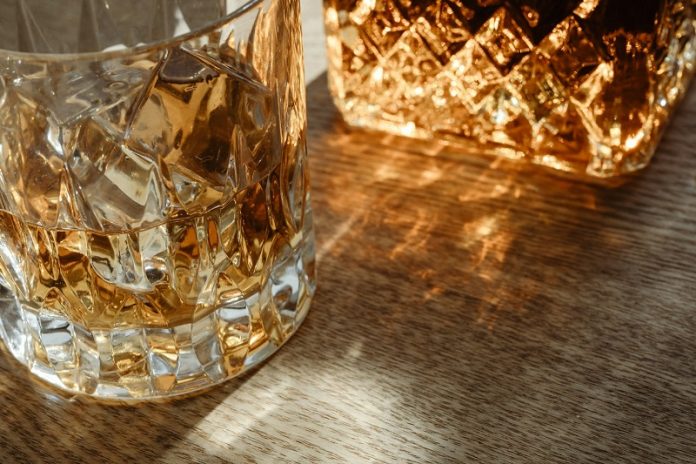
A team of scientists has developed a groundbreaking method to transform waste from whisky production into valuable bio-based chemicals, potentially revolutionizing the chemical manufacturing industry.
This new approach could be worth up to £90 million in global markets and significantly reduce the environmental impact of producing essential chemicals.
Researchers from RIPCELL, a chemical manufacturing company, and the University of Aberdeen have found a way to extract high-value compounds like lactic acid from the waste generated during whisky distillation.
These compounds are used in various industries, including pharmaceuticals, food and drink, and cosmetics, which traditionally rely on unsustainable, petrochemical-derived ingredients.
The project, supported by whisky group Chivas Brothers, used waste samples from 12 distilleries across Scotland.
The research team focused on two by-products of the whisky-making process: pot ale and spent lees. Pot ale is typically repurposed as low-value animal feed, while spent lees—produced at a rate of 10 liters for every liter of whisky—are usually discarded.
Using a technique called liquid chromatography, the researchers successfully isolated and extracted valuable acids from pot ale and adapted the method to retrieve additional solvents from spent lees.
This innovative process not only adds value to what was once considered waste but also offers a more sustainable alternative to traditional chemical production methods.
A life cycle analysis of the process revealed that the bio-based chemicals produced this way have a much lower carbon footprint compared to those made from fossil fuels.
On a global scale, this method could reduce industry emissions by an estimated 392 million kilograms of CO2 equivalent each year.
With the feasibility study showing promising results, the team is now preparing to scale up the separation process to prove its viability on an industrial scale.
Dr. Eve Wildman, founder of RIPCELL, emphasized the significance of this discovery: “The Scottish whisky industry produces around 2.6 billion liters of wastewater every year. For decades, most of these by-products have been used as animal feed, but our new method offers a more valuable and sustainable option.
This could transform how distilleries manage their waste and also reduce greenhouse gas emissions from chemical production. For every kilo of bio-chemicals produced, we can eliminate 1.59 kg of harmful greenhouse gas emissions.”
Dr. Liz Fletcher, director of business engagement at IBioIC, praised the project as a shining example of adding economic value by taking a circular approach to waste. “This process marks a significant step forward in reducing the environmental impact of manufacturing for both whisky producers and the chemicals industry,” she said.
Dr. Alan Mccue, senior lecturer at the University of Aberdeen, highlighted the innovation behind the project. “Utilizing wastewater from whisky production to recover bio-based chemicals is a highly innovative idea.
It’s exciting to see Scottish heritage linked to sustainable chemical production, and I look forward to supporting RIPCELL as they move toward commercial application.”
This innovative approach not only brings value to the whisky industry but also offers a promising solution to reducing the environmental impact of chemical manufacturing on a global scale.



